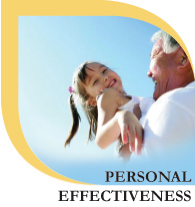Self-discovery & Awareness

Self-discovery and awareness means understanding one's thoughts, feelings, values and background and how they impact the success of the interaction and relationship, or how they may influence one's work. It is recognizing one's own biases by tracing them to their origins, through reflection and by noticing one's own behaviour—and then intentionally seeking a way forward that positively impacts the interaction and relationship. It means maintaining new ways of thinking and acting when situations become difficult or uncertain, or in times of urgency.
Demonstrates the Behaviour When
- Observes own behaviour and actions
- Recognizes impact of own behaviour and actions upon others
- Seeks feedback and considers it carefully
- Is open to new perspectives and different ways of thinking and working
- If uncomfortable with unfamiliar experiences, expresses misgivings or discomfort and seeks help to move forward
- Seeks guidance and support on ensuring personal perspective is sensitive and responsive to the needs and interests of Indigenous people
- Is aware of one's biases and monitors them to avoid misunderstanding
- Manages one's thoughts and feelings when challenged. Looks at differences as opportunities, not threats
- Speaks honestly about one's own biases and assumptions
- Demonstrates awareness of personal biases when writing, or when interpreting the written word
- Acknowledges the thinking, emotions and behaviours of others
- Suspends judgment or decision making until fully understanding the situation
- Shows emotions that are genuine, culturally appropriate and that honour the relationship
- Continually looks for opportunities to improve self-awareness
- Seeks self-discovery by spending time with Indigenous people in their community or in other settings
- Recognizes how personal values are shaped by one's ideas, belief systems and opinions
- Recognizes assumptions and biases that surface when that value system is offended
- Adapts behaviour in the moment to be more culturally appropriate and to honour the relationship
- Avoids safe and predictable environments. Pushes self into uncomfortable and ambiguous situations to increase self-awareness
- Notices and manages personal uncertainty and the fear of the unknown
- Provides feedback that is truthful and candid. Coaches others towards self-awareness
- Creates opportunities for the development of self-awareness, personally and in others
Needs Development When
- Is closed or defensive when receiving feedback
- Behaviour shows lack of awareness of one's feelings and thoughts and their impact upon others
- Fails to question own feelings and responses to people and situations
- Fails to clarify assumptions
- Stresses importance of own thoughts and feelings, but not those of others
- Feels unhealthy guilt for historical actions taken against Indigenous people, which inhibits continued self-discovery
- Does not admit mistake and learn from it
- Avoids interactions and situations involving Indigenous people
- Demonstrates lack of awareness of personal biases in thinking when writing, or when interpreting the written word
- Personalizes messages and responds in an emotionally charged manner
- Shows strong emotion that inhibits the relationship and the situation
- Perceives differences in opinion as a threat
- Lets emotions associated with differences surface
- Erects personal emotional barriers that deter relationship building and achieving results
- Seeks the familiar and avoids potentially challenging situations
- Demonstrates a barrier to understanding differences and looks for ways to reinforce personal beliefs
- Actions reflect a belief that no self-discovery is needed
- Actions reflect a position that it is others who need to grow and develop in order to understand one's perspective
- Allows fear of the unknown to stop understanding of the origin and true meaning of differences and similarities
